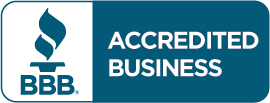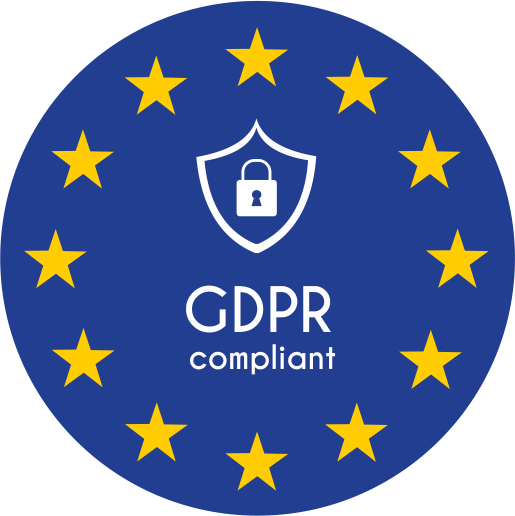by Charles Oropallo | Oct 16, 2020 | Internet, SEO
Almost all businesses get the usual spam SEO (Search Engine Optimization) phone calls.
Recently, one of my web clients took one. As a result of such calls, she emailed me. She expressed a lot of concern about having been told very negative things about her web traffic and website operation. It sounded like he was trying to get her to spend money. Money she’d never see a return on her investment for.
High-pressure sales tactics are something I have instructed staff in all our years in business to avoid. CharlesWorks policy forbids selling clients anything they don’t need. The difficulty is that there are so many spammers and scammers out there sending the same messages that people believe them. You can tell the same lie a thousand times and it’s still a lie.
Among the thousands of websites we’ve handled, her particular business is very unique – especially during the COVID-19 epidemic. Her classes are limited regarding how many people she can have in them at any given time. I told her that she is the one who knows best what should be on her website. And she is the one who knows best what she has to offer and when she can offer it.
The nature of her business, it seemed to me, is based more on a following she has developed over time. And she is limited as to how many people at a time she can physically handle. And – much as I hate to say this – COVID is going to remain a thought in many people’s minds – at least through this upcoming winter season. Things will change when a vaccine is widely available. However, common sense dictates it will be a while before everyone generally has access to it.
I suggested she shouldn’t spend more than she absolutely has to – to just keep her business operational. Those small business owners who can stay in business through this pandemic will be the ones who do great once they reach the other side of this.
It’s troubling that someone had pressured her enough to do work on her site that she became stressed over it. Sales people who proceed with such a hard sell attitude are clearly desperate for work. Desperate people are not working with their customer’s best interest in mind. My advise is to not talk to these people.
My suggestions for dealing with these really hard line sales calls are:
- “Remove me from your calling list.” Tell them to remove you from their calling list. Once you say those words, they are supposed to do so by law. I regularly tell spammers this, and they generally don’t bother to call back.
- Block their phone number. Block their number through whatever mechanism your telephone carrier has set up to do that. I do this on a pretty regular basis with the robocalls (which are actually illegal in most cases) and take a few minutes to report them at the https://www.donotcall.gov/report.html site.
- Visit the National Do Not Call Registry. Go to https://www.donotcall.gov where you can put your phone numbers on the National Do Not Call Registry. Mine have been on this for many years.
While these suggestions don’t stop all the spam calls you’ll get, they do stop many.
Every small business owner can and should review their website. They should ensure that everything is up to date for offerings and schedules. That only costs them a few minutes. Because CharlesWorks charges for changes by the minute, those kinds of changes only incur those minutes of charges.
I hope this is helpful to you!










by Charles Oropallo | May 13, 2020 | Email, Internet, Monadnock Shopper News, Security, Shopper News, The CW Corner
The pandemic we are dealing with doesn’t always bring out the best in human nature. Such times are when scammers are more apt to take advantage of people. Many people are feeling anxious and helpless. Add economic issues and it’s clearly a recipe for depression and uncertainty.
Most small business owners have heard of PPP (Payroll Protection Program) loans. These are to help businesses stay alive and keep people employed during this pandemic. There are incredible numbers of scams involving PPP loans.
Most scams come through email. They also happen over the phone. Unbelievably, calls and email are great mediums for scammers. Emails trick people into loading viruses onto their computers. Both manipulate people into volunteering personal information! The result is identity fraud and/or account thefts.
Internet and telephone scams have one important factor in common: instill a sense of urgency in the mark. If the scammer can make you think you need to act on this right away, you probably will.
I suggest you:
1) Deal with bankers/lenders at respected institutions you actually know. Use the drive-through window if you must to set up an appointment.
2) Call your banker/lender if you get an email or phone call offering their help with the PPP loan – even if the email or phone call appears to be from a legitimate source.
3) Understand that emails and phone numbers can be spoofed – made to look like they’re from a legitimate source.
Be cautious and you won’t have to regret the unimaginable headaches that those who have suffered identity theft and other losses have experienced.










by Charles Oropallo | Apr 15, 2020 | Internet, Monadnock Shopper News, Security, Shopper News, The CW Corner, Website Development
Most of the articles I submit are to help the average web user or website owner learn a few web related tidbits. This one is geared toward web developers.
The scam asks about doing web development and whether it can be paid via credit card. It lets you know right away that they have a good budget to make the site. They also tell you they want it to be like a particular other site that you can check out to see what the project will entail.
Then the scam is presented – the scammer needs a favor. When you write back and ask what that favor is, here is a verbatim response I received:
“The favor i need from you is. i would give you my card info’s to charge for $7,700 plus credit card company charges, so $2,000 would be a down payment for my website design and the remaining $5,500 you would help me send it to the project consultant that has the text content and the logo for my website so once he has the $5,500 he would send the text content and logo needed for my website to you also the funds would be sent to him via Instant Transfer or Cashier Check into his account, sending of funds would be after funds clears into your account And also $200tip for your stress So i will be looking forward to read back from you. Thanks”
Then I indicate my credit card company doesn’t allow such transactions. I never hear from them again…
Most scams are built upon the greediness of the mark – purposely using poor grammar and presenting what looks like it’ll be a easy way to make some quick cash. That’s how they trick you out of your money. We all know the old saying: If it sounds too good to be true, it probably is.










by Charles Oropallo | Mar 4, 2020 | Domains, Internet, Monadnock Shopper News, Security, Shopper News, The CW Corner
Explained really simply, domain names are just pointers that convert recognizable words or characters to Internet addresses so we can view a website. Whenever a domain name is created, its creation date and expiration date are publicly available.
There are many domain scams out there. A rather common one I often see is where an unscrupulous company tries to overcharge you for your domain name and get control of it.
The main way they do this is by first scaring you into thinking you might lose your domain name because it is expiring. They do this by sending a carefully crafted letter to you through the postal service. The message appears at first glance to resemble an invoice convincing you to renew your domain name with them. These messages are very convincing.
Reading the “invoice” carefully actually reveals it states it is not an invoice – but in fact it is an “offer”. That statement is what keeps it “legal”. Amazingly, some of the companies that trick domain owners like this have been prohibited from operating in Canada after being legally challenged by the Canadian government.
My advice is to always check with your domain provider when presented with anything appearing to be a bill that appears suspicious. It will save you a lot of headaches going forward.










by Charles Oropallo | Feb 5, 2020 | Do-It-Yourself, Email, Internet, Monadnock Shopper News, Passwords, Security, Shopper News, The CW Corner, Website Development
I’ve written several articles about specific scams that are occurring on a regular basis on the Internet. They seem to subside for a short time – a very short time – and then a wave of them happens again.
One of the worst – as far as I am concerned – are the ones where the email recipient is being told they must verify their email. These have some common traits with most Internet scams:
1) A sense of urgency – they want you to take care of this immediately
2) A time limit – they give you within 24 hours to act
3) A threat – they tell you your email will be locked.
The first thing you have to understand is that nearly everyone gets these on occasion. I have received them myself in which they are made to look like they are from CharlesWorks. So when our clients get these they tend to become very worried very quickly.
I can’t stress enough that most legitimate companies will not send out messages like these. To fall prey to these can be a real nightmare. With access to one’s email these days the bad guys can wreak havoc in one’s life. The worst cases are called identity theft!
Don’t be the unfortunate one who falls prey to these scammers. If you have been “notified” of something serious – call your provider up and speak with a representative. Just like at my company – it’s a lot easier for us to allay your fears than to have to try to clean up the mess that can happen with compromised accounts.













 European Union General Data Protection Regulation Compliant
European Union General Data Protection Regulation Compliant